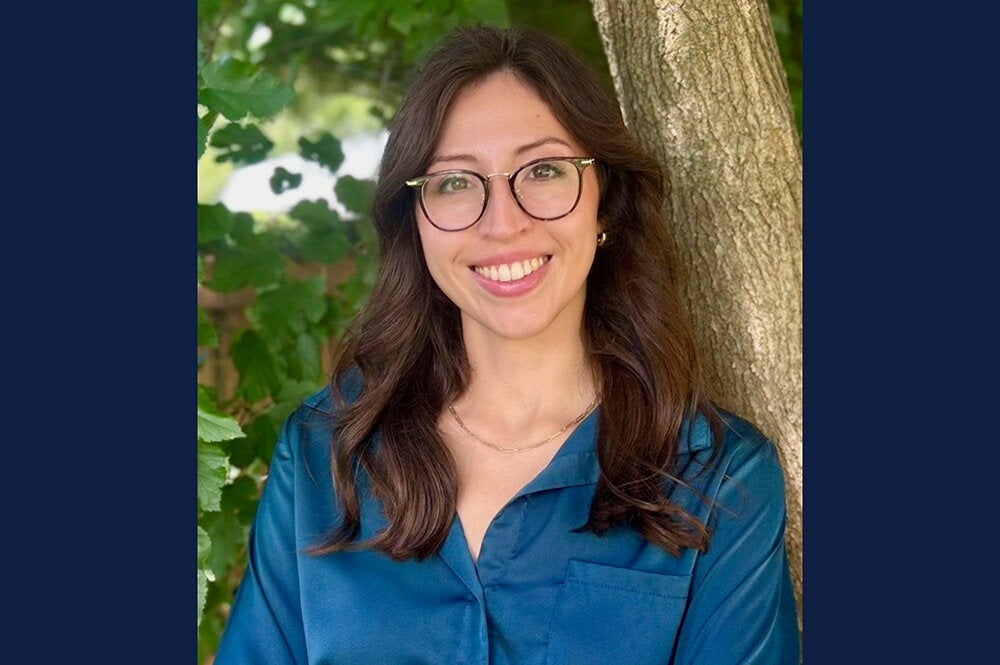

Dolores Albarracin has been studying HIV for more than two decades, but, during the last decade, the digital age has ushered in a new aspect of her work. The professor of psychology and business is looking to social media and technology to find new ways to fight and prevent outbreaks of HIV and Hepatitis C.
Government institutions, community groups, and many others already use social media to spread messages about condom use, HIV testing, and other key facts, but as Albarracin points out, the messages are transmitted in an “informal” way—that is, without utilizing Big Data to optimize and target the messages.
In one of her ongoing studies, “Mining Social Media Message for HIV Testing and Prevention Communication,” Albarracin wants to automatically identify counties in the United States that could benefit from social media messages about preventing HIV, and then re-channel promising, already existing messages that can be spread through platforms such as Facebook, Twitter, and Instagram.
This is a highly novel concept because until now campaigns have required expensive design of new messages. This method will use the Internet as a living repository of messages that are current, expressed through the words of the community, and highly cost effective.
Albarracin and her research team were awarded a grant by the National Institute of Health for $2,911,036 to fund the project over five years.
Albarracin feels this study is significant because it brings modern communications to bear on an epidemic. Albarracin will develop a database which will automatically and continuously input social media content from Facebook, Instagram and Twitter--and pair it with behavioral data from American Men Internet Survey (AMIS), and HIV prevalence data from AIDSVu.org.
Experimental messages will be evaluated and selected based on the number of repostings, likes, dislikes, and comments as compared to other, randomly selected HIV-related messages. All of these messages will be disseminated by health departments in selected counties.
“The project is innovative in several ways,” the study’s abstract reads. “First, the social media messages will involve diverse inputs (text, images, videos) never before brought together in this area. Second, we are not aware of the prior use of the proposed triangulation involving epidemiological, behavioral, and social media data. Third, a method of mining naturally accruing messages will be new and transformative, allowing for the generation of live campaigns with messages selected that remain current, sustainable, and community-based by design.”
Albarracin has another new project, which, with help from health officials in heavily afflicted areas, will target specific regions that they can predict might experience an outbreak of HIV and Hepatitis C because of the opioid epidemic. She noted that 200 counties in 10 states will be targets, with particular attention paid to the states of Indiana, West Virginia, and Georgia.
Relatedly, Albarracin received the 2019 Avant-Garde Award from the National Institute on Drug Abuse for her work on her opioids project. The award will provide $3,901,354 over five years.
The project will involve an online platform with a communication component and a social action component, tested via a randomized control trial with 2,200 participants. The digital platform will incorporate Big Data methods to identify efficacious messages, misconceptions, and debunking messages, and foster positive social interactions between people who use opioids and other members of their community.
This is important, Albarracin said, because although the origins of the opioid crisis are complex, social determinants of health, stigma, misconceptions about opioids, and a culture of isolation and despair are among the most critical causes.
“I thought we had to try to do research to show the breath of the problem. I think U of I is very well positioned to contribute to this area based on the capabilities that we have and where we are,” Albarracin said.
Albarracin hopes that this study will make a significant impact in areas of the United States that need help the most.
“Right now, the areas are in a dire situation. There are not a lot of resources available, the areas are historically underserved at many levels,” Albarracin said. “In the end, we’ll be able to determine if this program is better than what’s available currently.”
The Avant Garde Award is one of the Pioneer Award mechanisms at the National Institutes of Health and “supports individual scientists of exceptional creativity who propose high-impact, bold basic research that will open new areas of HIV/AIDS research and/or lead to new avenues for prevention and treatment of HIV/AIDS among people who use drugs. Typically, about three awards are given every year to pioneers in enhancing research involving the treatment and prevention of HIV and AIDS. This year there was only one.


